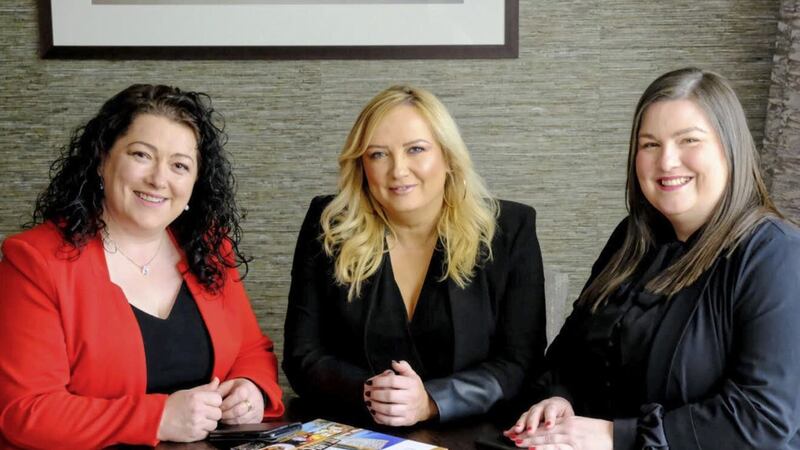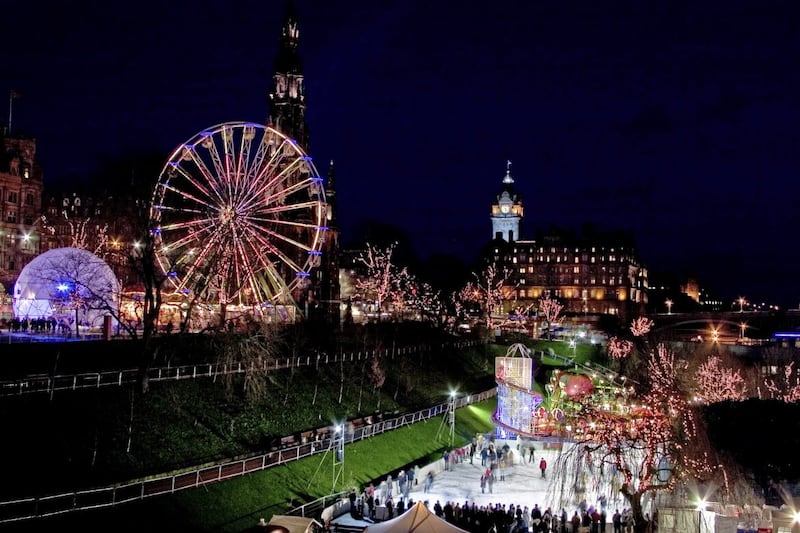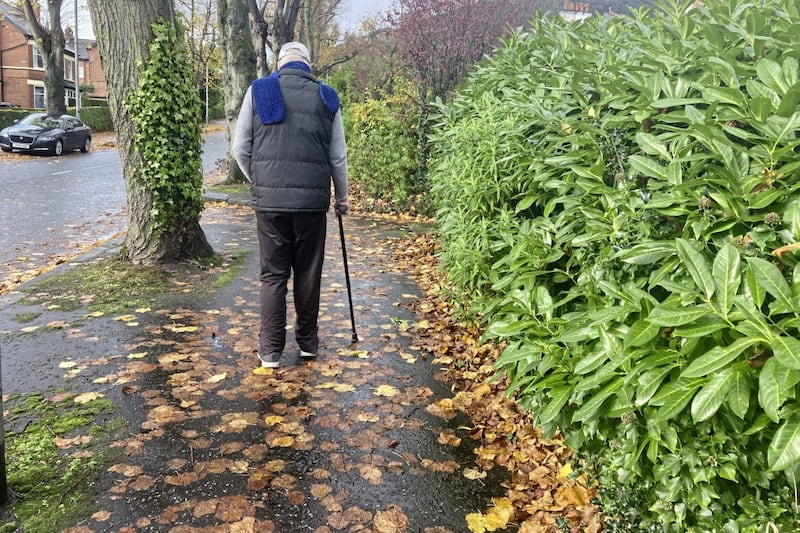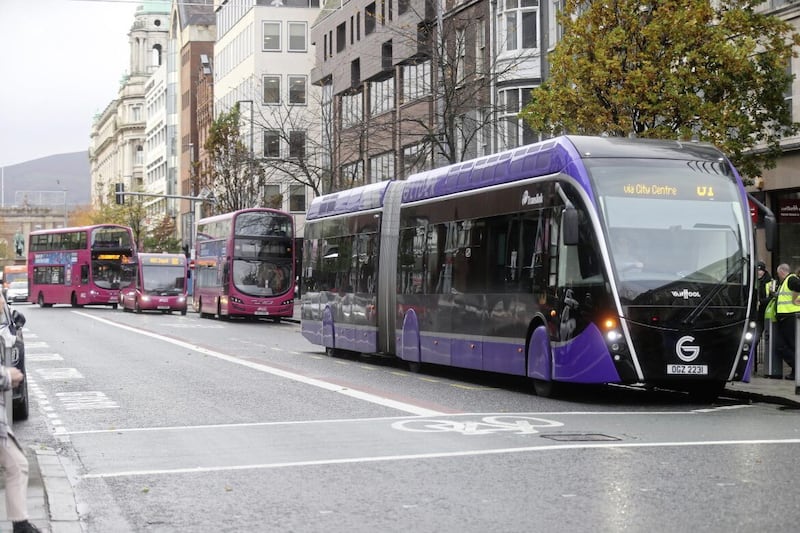TODAY is Commonwealth Day. The queen sent a message of support to 54 member countries but a service of thanksgiving cancelled – all very different from the colourful celebrations of past years.
But more important, this is International Women’s Day and throughout the world women are joining to reaffirm this year’s campaign theme: ‘ChooseToChallenge A challenged world is an alert world’.
For over 100 years, March 8 has marked the achievements of women in all walks of life but also a day to seek ways to give us our place in this frenetic world. It’s not enough to celebrate being a woman; it’s vital our voice is heard in what is still a masculine-dominated world despite over 50 per cent of the population here being female.
Some would argue a woman’s place is in the home and that this is feminist rhetoric. Nonsense.
Now, under the title ‘Women In Media Belfast’ (WIMBelfast) and with the mission ‘to amplify the voices of women working in print, broadcast, online and entertainment media and to showcase the knowledge and expertise of women in all sections of society’, three local women have taken up this challenge and are inviting us to join their radical project.
The three are lawyer and political commentator Patricia MacBride, Irish News journalist and columnist Allison Morris and journalist Amanda Ferguson who writes for Reuters and the Washington Post.
From 10.30am until 4.30pm today they host Zoom meetings, interviews and workshops with a number of participants who have reached the top of their profession – or, for some, almost the top because this is the problem; the proverbial glass ceiling is still in place and it has to be smashed through skills, experience, professionalism and determination.
Individually we're responsible for our own thoughts and actions but together we can achieve much. With the support of the National Union of Journalists, writers especially can choose to call out inequality, bullying, gender bias, discrimination and stereotyping.
This requires women to be brave and resolute, not necessarily big and powerful; some of the women I have admired in life have been from very simple backgrounds.
:: Little women
When I first worked in Ulster Television a tiny elderly lady arrived to appear on the Roundabout programme. Christian missionary Gladys Aylward was dressed in the what were then the traditional clothes of Chinese working people – a navy, pajama-like suit. She had wispy grey hair and a devastating smile.
At the age of 26 this English parlour maid became a probationer at the China Inland Mission Centre in London and then went on to Yangchen where she set up an inn for mule-caravan drivers to rest.
She became the government foot inspector; soon foot binding of women was banned. She quelled a riot in a men’s prison when soldiers were afraid to intervene; she was instrumental in prison reform and became respected as Ai-Weh-Deh, the ‘Virtuous One’.
Gladys began to buy abused children and eventually built a family of over 100 boys and girls. She became a Chinese citizen, lived frugally and dressed like those around her.
When the Japanese invaded, this feisty female gathered up her children and took them to the mountains. They walked for 12 days and nights and escaped across the Yellow River to safety in central China. In failing health, she returned to England in 1947 and died in 1970.
When I was given my own programme on Radio Ulster years ago, my first interviewee was Saidie Patterson. What a responsibility! I’d done my homework – born in the Shankill, her father died when she was very young, then her step-father, then her little sister at seven years of age.
When she was only 14 Saidie attended her mother in childbirth but the woman died of shock and haemorrhage. There was no money for doctor’s fees.
“As I stood in my dear mother’s blood,” she said. “I didn’t shed a tear, but I felt a Cross being put on my back and, at the same time, I felt a strange warmth coming into the room. Looking back now, I’m convinced it was the Holy Spirit. From that day on I put my hand to doing what I could for what was right. That night I became an adult."
She worked as a weaver in Ewart’s Mill and soon was so angry with the conditions for the women she called a strike. The workers downed tools until a heavily pregnant woman was allowed to go home to have her baby, being assured her job would be waiting for her when she was ready.
That was the start of Saidie’s Trojan work as a trade unionist in the Amalgamated Transport and General Worker’s Union. All her life she fought for women’s rights and was a peacemaker in the Troubles; she died in 1985. On March 8 2018 Baroness May Blood unveiled a blue plaque on the Shankill Road Methodist Church to honour this lady with a powerful metaphoric punch.
:: WIMBelfast’s voice
That drive for the voice of women still goes on today through WIMBelfast, as Amanda explains.
“When you look around, women are poorly represented in many walks of life, from politics, the boardroom to so many organisations. There’s a real lack of women representatives and we want to highlight this.”
Allison adds: “We've been inspired throughout our careers by powerful women from all walks of life who have made a huge difference, but often those voices work quietly in the background, rarely receiving the recognition they deserve.”
Patricia agrees: “The initiative is to create a media environment where competent and confident women’s voices are regularly heard across all outlets. Our goal is to amplify the quiet voices.”
Although aimed mainly at members of the media, today is open to all women – men are also welcome – and is set to become an annual celebration with events throughout the year.
Interesting that the colours chosen for WIMBelfast are green, purple and white, the colours identifying the Suffragette movement.
There's still time – details at wimbelfast.com









